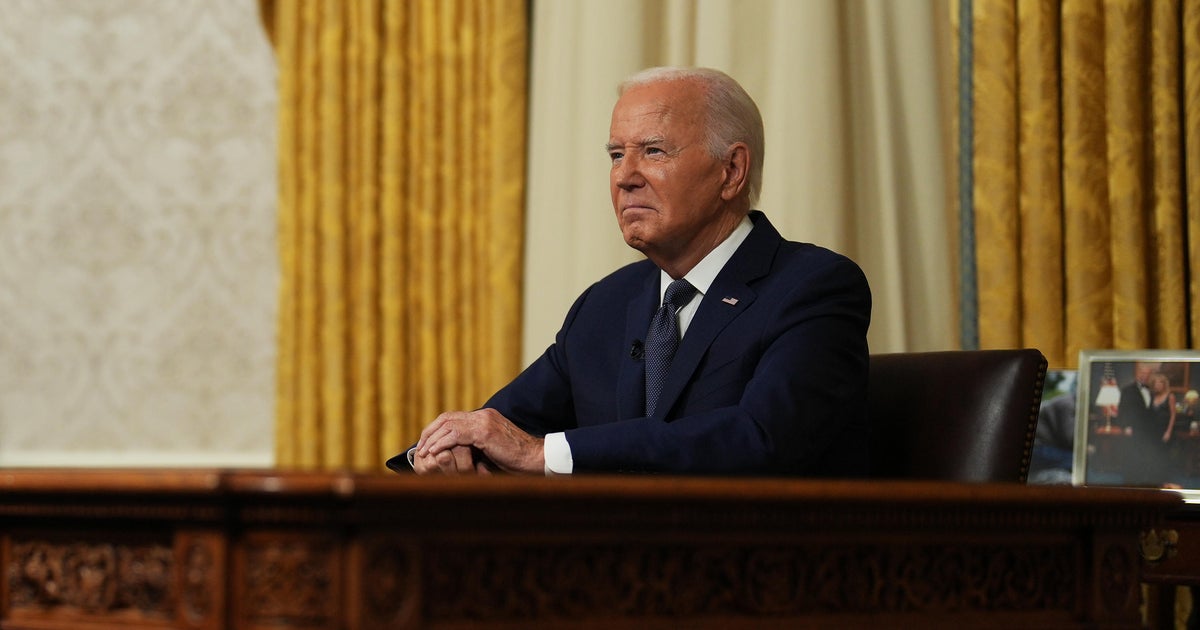Proposed legislation attempts to address rising suicide rates among black children
Representative Bonnie Watson Coleman of New Jersey on Tuesday introduced legislation to combat rising suicide rates among black youth. The Pursuing Equity in Mental Health Act of 2019 proposes over a billion dollars be used to address the suicide rate among black youth, which is increasing faster than among any other racial and ethnic group.
"There's over a billion dollars in that legislation addressing different aspects of the gap we have found in service tools and research that we think are very important in addressing what we consider a very critical situation we have with black mental health and youth suicide in this country at this time," Watson Coleman tells CBS News.
Data from the Center for Disease Control's Youth Risk Behavior Survey shows suicide attempts by black adolescents rose by 73% between 1991-2017, while the rate of injury by attempt rose by 122% for black adolescent boys during that same time period.
According to the proposed legislation, the largest sum of money, $650 million, would go to the National Institute on Minority Health and Health Disparities (NIMHD) — part of the National Institutes of Health (NIH) — to fund research into mental and physical health disparities between minorities and the rest of the population. Another $100 million would be allotted to the NIH to help build relationships with communities and conduct more patient-based research.
Another $250 million will be used to place more culturally competent mental health services in schools in order to properly treat youth of color.
The rest of the money will be used to develop culturally competent curricula for mental health care professionals, help more students of color enter the mental health field and create interprofessional healthcare teams.
"As a black community, there has always been a sort of stigma associated with seeking mental health treatment," Watson Coleman said. "We've been taught to sort of buck it up. You know how this society is. Be strong. If you're religious, lean on Jesus and on and on. What we realized is that we have missed the opportunity in many instances to deal with what is illness."
The legislation was proposed alongside the release of a report titled "Ring The Alarm: The Crisis of Black Youth Suicide in America," which was put out by the Congressional Black Caucus' Emergency Taskforce on Black Youth Suicide and Mental Health.
The taskforce, which is chaired by Watson Coleman, worked alongside a group consisting of researchers, doctors, religious leaders and others to produce the report. The working group was led by the executive director of the NYU McSilver Institute for Poverty Policy and Research, Dr. Michael A. Lindsey, who has conducted key research uncovering rising suicide and attempted rates among black youth.
"The signs of suicides in black youth are overlooked and not well understood," Lindsey tells CBS News. "Oftentimes, when kids are struggling with psychiatric issues, they're misinterpreted to the point of being perceived as the kid who is angry or hostile, uncontrollable, and there may be some psychiatric issue that we are not just paying attention to."
He went on to say the report is a public call to carefully review the experiences of black youth with compassion, especially in how their experiences factor into psychiatric issues.
According to the taskforce report, there haven't been many studies examining suicide risk in black children and adolescents. The few studies that have been done on this group suggest risk factors for suicidal thoughts and suicide attempts can include depression, delinquent behavior, poor familial support and, in some cases, substance abuse. Exposure to traumatic racial events online have also been attributed to symptoms that indicate suicide risk.
Lindsey says more research will help hone in on risk factors and lead to the development of better prevention methods.
"We don't want this fire to dim," Lindsey said. "We definitely call for more research that not only documents the risk factors but that can also lead to interventions to help us address rising rates in suicide ideation and suicide deaths."
Dr. Alfiee M. Breland-Noble, a Virginia-based psychologist and mental health advocate, served on the working group for the past eight months. She says one of the most important aspects of both the report and legislation is the push for more money to be put into research.
"It's unconscionable to me that we can have national organizations that are funded by tax dollars that can repeatedly say to black investigators, 'The work that you're doing is not good enough for us to fund you, your research is not valuable enough to fund you,'" she said. "That's painful.
If you or someone you know is in emotional distress or suicidal crisis, call the National Suicide Prevention Hotline at 1-800-273-TALK (8255).
For more information about mental health care resources and support, The National Alliance on Mental Illness (NAMI) HelpLine can be reached Monday through Friday, 10 a.m.–6 p.m. ET, at 1-800-950-NAMI (6264) or email info@nami.org.





